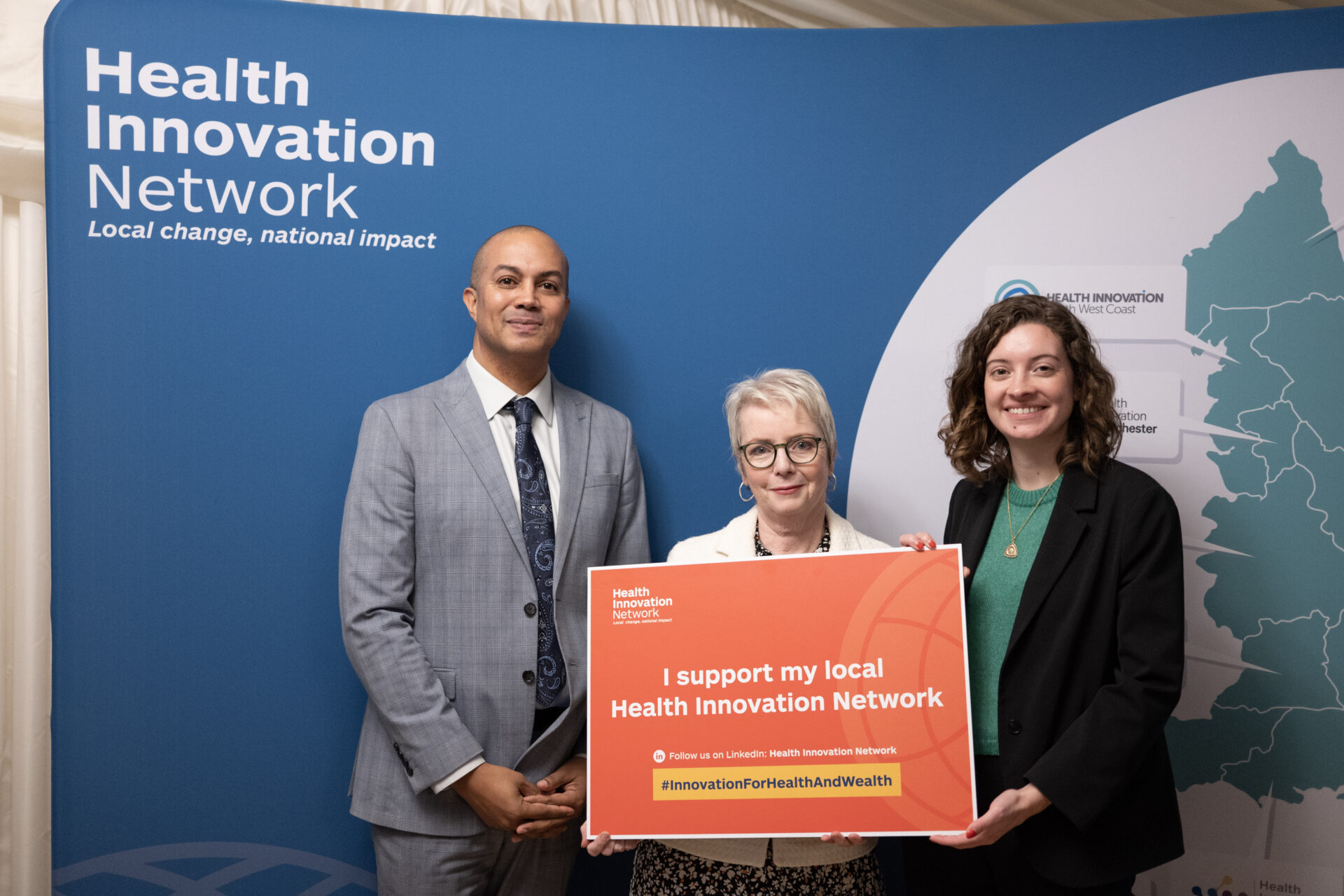A range of NHS-branded patient information materials launched last year by the Health Innovation Network to support and prepare people who have been invited for a Structured Medication Review with their GP, pharmacist or other healthcare professional, have been found to empower patients and improve the quality of consultations.
Developed in partnership with patients, Leeds University and other partner organisations to encourage shared decision making about medicines, the materials are free for healthcare professionals to use with patients and are available in a range of formats and languages from the Health Innovation Network website.
In response to further feedback since their launch, the resources have been extended to now include 12 different community languages, easy-read versions and an animation to further improve engagement with seldom-heard communities.
The Health Innovation Network is also funding 25 Primary Care Networks (PCNs) in areas of high deprivation to drive the uptake of Structured Medication Reviews through use of the patient information materials, supporting the NHS aim to reduce healthcare inequalities across England as part of the Core20PLUS5 approach.
People who may benefit from a Structured Medication Review are those who are taking multiple medicines (usually for a number of long-term conditions) and may be experiencing the problems that can be associated with polypharmacy. A Structured Medication Review has been shown to help to identify medicines that are no longer appropriate for such patients or that may need a change in dose.
Research has shown an increased risk of problematic polypharmacy for older patients and those from poorer backgrounds (1). A higher proportion than average of Black, Asian and Minority Ethnic populations are taking eight or more medicines (1).
Structured Medication Reviews are the best tested intervention for reducing problematic polypharmacy (1). However, studies (2) also show that most patients do not understand what a Structured Medication Review is and receive limited, if any, information to help them understand or prepare for their appointment.
These innovative patient information materials help patients to understand the process, empower them to get the most out of their Structured Medication Review and support them with any changes to their medicines. Work to date has shown that the use of these materials is helping to remove barriers to engagement with patients in communities that traditionally may not have taken up the invitation to review their medicines.
Following the initial launch of the patient resources in September 2023, the Health Innovation Network carried out two observed pilots with CORE20 PCNs in Greater Manchester and Nottingham, testing the materials with 269 patients. The participating practices included some of the most deprived 20% of the national population in England, with high levels of polypharmacy and language being a significant engagement barrier.
The PCNs who shared the information resources with patients before their Structured Medication Review reported that the quality of the consultation had improved as a result, and they were able to increase interventions to address problematic polypharmacy, which add a cost to the healthcare system and diminish quality care for the patient.
Patients reported that the materials helped them to think about their medicines before their appointment, saying that they helped them feel more secure talking about their medicines issues and that they appreciated receiving the documents in their first language. In the case of Nottingham PCN, attendance rates for Structured Medication Reviews increased by 88% (3).
Speaking of the impact of the patient information materials, Sarah Hafeez, Advanced Medicines Optimisation Pharmacist for NHS Greater Manchester Integrated Care Board, said: “The introduction of the patient information materials has helped to break down language and communication barriers with the aim of enabling our clinicians to have better conversations with patients about their medicines and improving the process of shared decision-making. Patients are coming more prepared, resulting in more meaningful conversations about their medicines. I am looking forward to seeing the benefits that their continued use will bring.”
Amy Semple, Health Innovation Network National Programme Manager for Polypharmacy, added: “We are delighted to find that the patient information materials are making such a positive difference – helping to breakdown communication barriers, address health inequalities and improve the outcomes of Structured Medication Reviews. We are excited to now also be funding 25 PCNs in areas of deprivation to encourage the targeted uptake of Structured Medication Reviews with more marginalised communities, through the use of the patient information materials.”
The resources include a Patient Structured Medication Review Invitation Letter; Stopping Medicines Safely Leaflet; Me and My Medicines and Are Your Medicines Working patient information leaflets; a patient-facing animation and an animation for GP waiting rooms. The resources are available in 12 community languages, including easy read and audio versions. Further information about the patient information materials and how they can be accessed can be found here.
References
1. Department of Health & Social Care: Good for you, Good for us, Good for everybody. 2021.
2.Okeowo, D et al. Barriers and facilitators of implementing proactive deprescribing within primary care: a systematic review, International Journal of Pharmacy Practice, Volume 31, Issue 2, April 2023, Pages 126–152, https://doi.org/10.1093/ijpp/riad001
3. Lad, B. A campaign to help patients discuss their medicines nearly doubled our medication reviews. The Pharmaceutical Journal, PJ, May 2024, Vol 312, No7985;312(7985) https://doi.org/10.1211/PJ.2024.1.314200

Join us on 11 and 12 June in Manchester to find out how the Health Innovation Network is improving health and driving wealth through health innovation. This year we’ll be joined on our stand by 18 Network-supported innovators, showcasing innovations which are helping to deliver the Government’s three shifts for the NHS and solve some [...]

The Health Innovation Network is delighted to announce the launch of Innovation Insights, a brand-new webinar series designed to highlight the latest in health innovation, offering attendees valuable insights into the adoption and spread of innovation within the health and care landscape. Each interactive webinar will feature: Expert presentations: Delivered by thought leaders across [...]

The Health Innovation Network, at an event sponsored by Sarah Coombes MP, brought together parliamentarians including Health Minister Karin Smyth MP and Chair of the Science, Innovation and Technology Committee, Chi Onwurah MP to meet with six innovators supported by health innovation networks across the country and their NHS partners. At the Meet the Innovators: [...]






